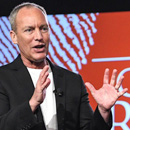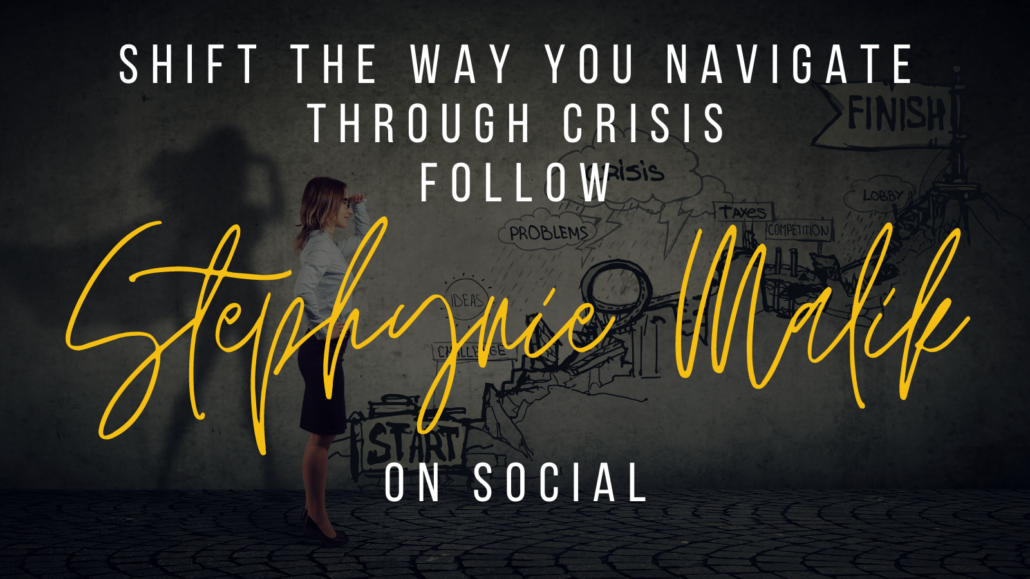COVID Response: A Real Catalyst to Ignite Real Change
I find it interesting to watch how people view and react to the word opportunity. Some wait for the “Window of Opportunity” to open. Some prepare relentlessly for the day that “opportunity” presents itself. Others are proactive — they create their own opportunities and become successful.
The COVID pandemic, and the CRISIS that has been created by our response to it, should make one thing clear. Regardless of how you view or react to the word, the OPPORTUNITY to fundamentally transform yourself and your business is in the real here and the right now! Capitalize and leverage it.
A recent Gallup article identified one huge opportunity that has emerged during the COVID pandemic. Employee engagement data shows that the percentage of “engaged” workers is at 38%, the highest it has been since they started tracking in 2000. Gallup’s analysis of the numbers identifies at least two significant drivers of this change.
In the simplest of terms, employers are communicating better with employees, and employees feel fortunate to have a job. Perfect! If these two circumstances don’t strike you as a catalyst to begin to transform your relationship with your employees and build safer and less toxic workplace cultures, you’ll have another perspective on “opportunity” to reflect on in the future — the “missed” opportunity!
Here are four simple things any manager, at any level, in any organization can do to “seize” this opportunity immediately and get results.
Item One: Define Realistic “People First” Goals
Two reasons this is vital. Realistic goals are more credible and actionable, especially if engagement and culture were significant pre-COVID challenges. Any immediate incremental change signals you intend to make this initiative a post-COVID priority.
Identifying goals also opens the door to get employees involved and engaged in identifying what the issues are and being a part of the solution. If you want employees to engage with organizational managers, be bold and visible in engaging them.
Item Two: Set Clear Expectations and Measure Progress
Here are a few things many companies get wrong about accountability:
- Accountability is a significant driver of both employee engagement and disengagement. Employees want accountability. Consistently meeting and exceeding performance expectations is a differentiator and key to landing developmental opportunities and promotions.
- Accountability negatively impacts engagement when performance expectations aren’t clear, realistic, applied equally to each team member, and when the tools, training, and coaching are not provided to achieve them.
Many things can cause a failure to meet performance standards that management, not the employees’ control—poor manager performance, poor manager training, inadequate employee training, zero coachings, and no career development discussions, to name a few. It’s not always employee behaviors that create a performance problem.
Item Three: Focus on the Frontline Management Team
I have read estimates that say that frontline managers directly supervise 80% of the workforce.
A 2010 McKinsey & Company research survey observed that 70% of CEOs were either “somewhat” or “not at all” satisfied with the performance of their frontline managers.
Those numbers are still very accurate today based on what I see and hear while on-site at many client companies. I am amazed and mystified by this!
Ask yourself three questions about your current frontline manager training approach.
- Does your training provide information on emotional intelligence and other critical communication skills?
- Does your training teach managers how to coach and develop their team members?
- Does your training integrate performance assessment and coaching for the manager as they practice those skills?
Perhaps those that directly supervise 80% of the workforce would equally benefit from such developmental programs that include mentoring and extensive coaching versus the traditional textbook manager training most receive.
Item Four: Lead — Don’t Manage!
You need to be the face and voice to lead this initiative. No consultants doing it for you, no forming strategy development groups that promise action that never happens.
It’s roll up your sleeves, jump in the trenches, get dirty, and get it done time.
Go big, be bold, stay visible, get vocal, and always be sure your words and actions are aligned.
Leadership isn’t positional authority; authentic leadership is the ability to influence and change behaviors — your own and those of others. Now is the time to lead.
Thomas Edison said it very simply and most eloquently. “Opportunity is missed by most people because it’s dressed in overalls and looks like work.” Why settle for the old “normal” in your post-COVID business world when you have the opportunity to transform your business to be extraordinary?
I’m curious. What types of things are you doing to improve employee engagement and enhance workplace culture?
As a master storyteller, Steve has unparalleled ability to communicate dynamic business and leadership truths through stories, anecdotes and humor. Harness the power of the “number one” predictor of professional success, impact, leadership, high performance and sustainable relationships in business and life. Steve’s highest rated keynote presentation.
To book Steve today, contact Michelle Joyce!
(For information on keynote presentations, team workshops, and one on one coaching.)
“The purpose of Leadership Quest is to help professionals develop their personal leadership, vision and emotional intelligence. Everyday I strive to help leaders and teams achieve their desired goals in sales productivity, leadership, time maximization, and life-balance. ”
 About the Author
About the Author
Steve Gutzler is the President of Leadership Quest, a Seattle-based leadership development company. Steve is a dynamic, highly-sought-after speaker who has delivered more than 2,500 presentations to a list of clients including Microsoft, Starbucks, the Seattle Seahawks, Pandora Radio, Boeing, Cisco, Starwood Corporation, the Ritz Carlton group, and the U.S. Social Security Administration. He recently was voted #1 by the readership of Huffington Post as the Most Inspirational Leader on Social Media.
A published author on leadership and emotional intelligence, Steve resides near Seattle with his wife Julie where they enjoy time with their three adult children and six grandchildren.




